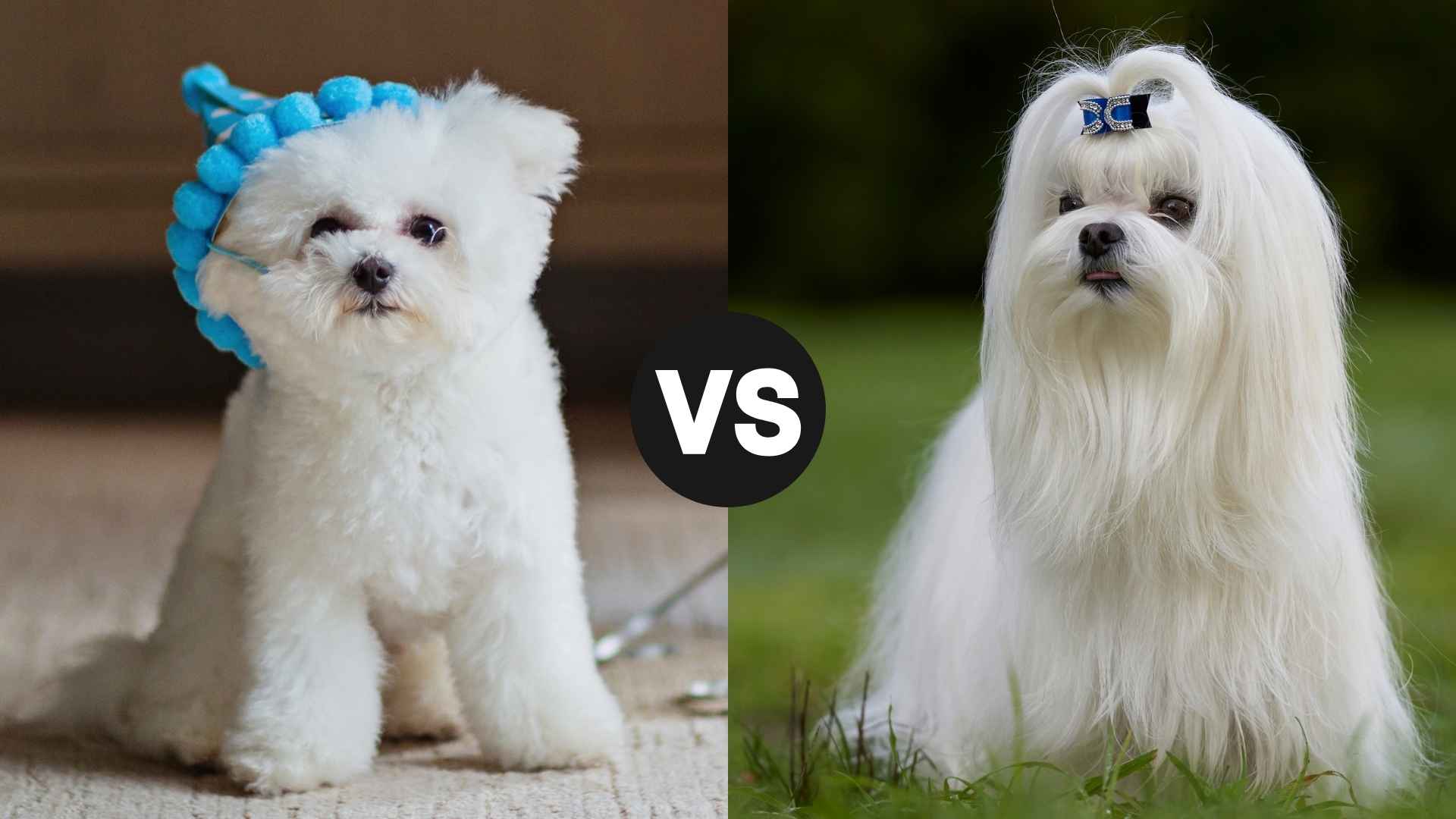When you imagine that fluffy white lapdog that almost oozes personality, then the Bichon Frise and Maltese are the two breeds that you can think of. Both are small, cute bundles of joy, and yet deciding which to get can be incredibly heart-wrenching and emotional.
Bichon Frises and Maltese are two very different dogs who may seem similar in appearance. However, they differ sharply in personalities, grooming, health, and lifestyle requirements.
Are you looking to match the playful dog like the Bichon Frise or the elegant stance of the Maltese? This guide will get you acquainted with all key differences to ensure you make the final selection with confidence.
Bichon Frise vs. Maltese
Bichon Frise vs. Maltese: Key Differences Overview
Bichon Frise and Maltese are the toy breeds that seem to be twins born in different places. Diminutive, puffy, white-coat lapdogs are the symbol of true beauty and affectionate nature.
Despite their similarities, these breeds bear some differences in grooming, temperament, activity measure, and proper care.
|
Feature |
Bichon Frise |
Maltese |
|
Size |
9.5 – 11 inches |
7 to 9 inches |
|
Weight |
12 to 18 lbs |
under 7 lbs |
|
Coat |
Curly, dense, hypoallergenic |
long, silky, single-layer |
|
Temperament |
Cheerful, outgoing, social, highly intelligent |
Elegant, affectionate, sensitive |
|
Exercise Needs |
Moderate |
Low to Moderate |
|
Trainability |
Highly trainable, stubborn |
Smart and easygoing |
|
Life Expectancy |
14 to 15 years |
12 to 15 years |
At a glance, the Bichon Frise depends on an active lifestyle with a loving nature, while the Maltese leans into calm companionship and elegance. But let’s dive deeper.
Comparison of Physical Appearance and Build
Bichon Frises are a tiny dog breed that has its trademark appearance: the round face, deep, dark eyes, and fluffy white coat that gives the dog a small cotton ball appearance. Tiny dog breeds are sturdy in compact bodies, and soft, dense coats and plumed tails make them look like white powder puffs.
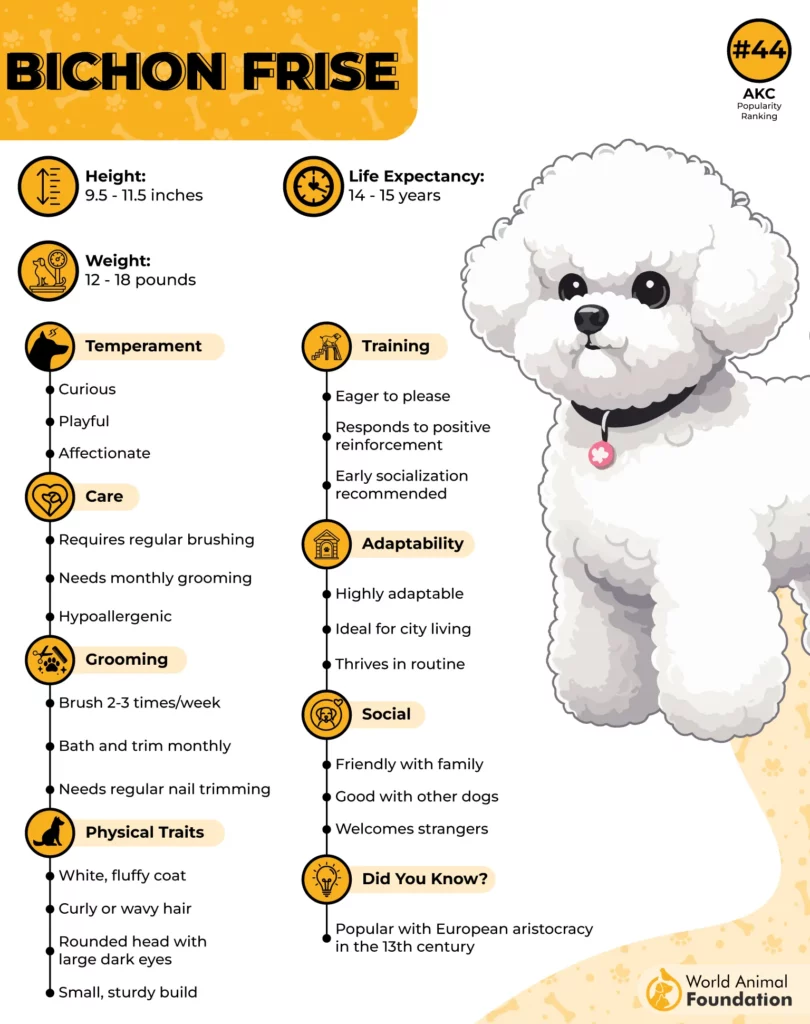
Maltese dogs are also smaller, calm, and gentle companions. Affectionate in nature and covered with a short or long silky coat, they do not walk; they float effortlessly on the floor, as per the AKC.
They are more sensitive and dainty. Maltese dogs have a regal pose and seem to fit very well in royalty. They are lighter in build, with the one-length coat hanging down upon the floor.
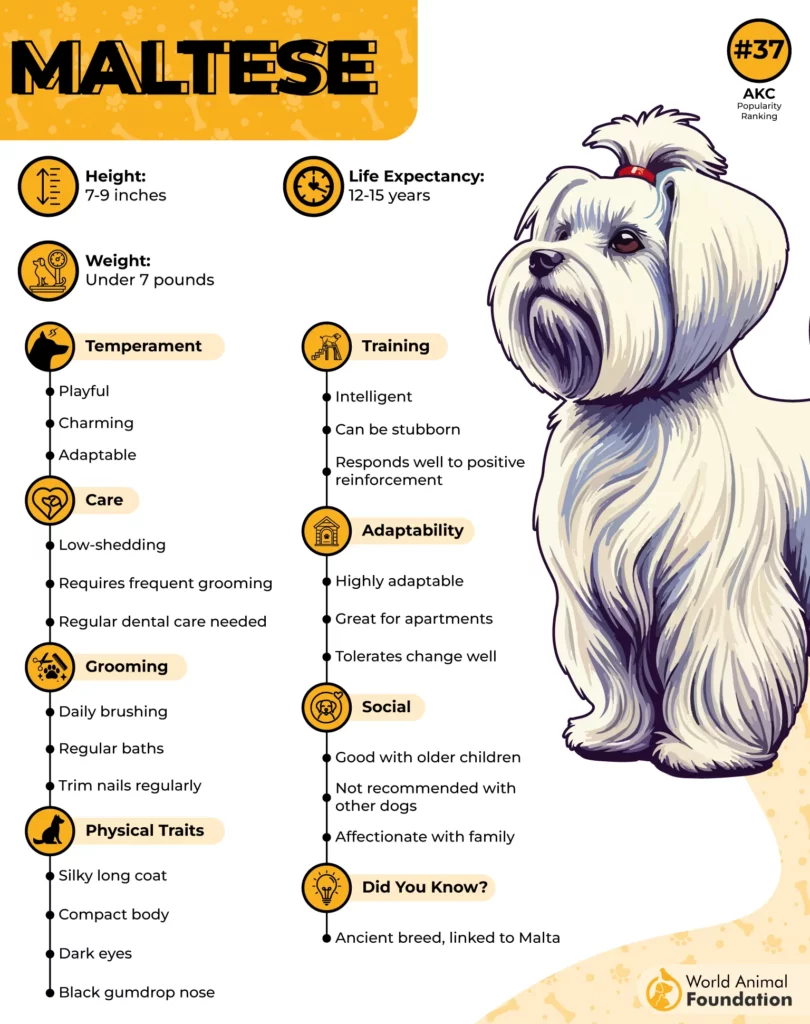
In case you have young children or bigger pets at home, Bichons are a more durable option. However, if you are a lap-sized dog lover, then you should know that Maltese dogs have received an award for portability.
Trainability and Learning Capabilities
Both are smart, and their desire to perform and learn is also different.
Bichon Frises have a reputation as fast learners; they are friendly and food motivated, and also respond well to positive reinforcement. This qualifies them as relatively easy to get the training sessions, and they are also good at learning tricks, obedience, and even agility courses. Bichons have a bit of a stubborn streak, and it may take time to house train them.
Maltese dogs are smart, yet their independence can be developed further. They are not ideal performers, but they find it enjoyable to indulge in the consistent training methods and are rewarded with affection. They react to praise and love; keep the training short and make it interesting with good behavior.
Therefore, in case you want a little clown that would enjoy amusing you, then a Bichon Frise will become your superstar. But if you want a polite and gentle companion dog, then Maltese dogs are the furry family member.
Exercise Requirements and Energy Levels
These pups do not require the same energy regardless of their size:
The Bichon Frise has a playful charm and does not require long hikes, which is why daily walks and a healthy portion of playtime are beneficial to them. These active individuals need mental and physical stimulation; otherwise, they will bark quite often.

Maltese, on the other hand, are more relaxed; they like to stay indoors and be very happy on the couch or cuddling in your warm lap. Do not let us get deceived by their princess-like outlook; they require half an hour of exercise on a daily basis and like the quick movements stated by PDSA.
Bichon Frise and Maltese dogs are both perfect for apartment living; you can choose based on your personal preferences.
Grooming Needs and Coat Maintenance
Here comes the reality of the matter, since both breeds require regular grooming.
The Bichon Frise coat is thick and curly, and they do not shed but grow consistently. To maintain their cloud-like coat, they require daily brushing to keep their hair in a tangle-free state, according to PetMD. High-maintenance dogs do not produce fewer allergens compared to other dogs.
Maltese are great companions that have a long, fine, silky coat, which tends to get knotted together and requires daily grooming, at least in order to preserve that near floor length. A lot of the owners prefer keeping them in a so-called puppy cut, which is easier to maintain with only regular brushing. Their white coat also gets stained, especially around the eyes and mouth.
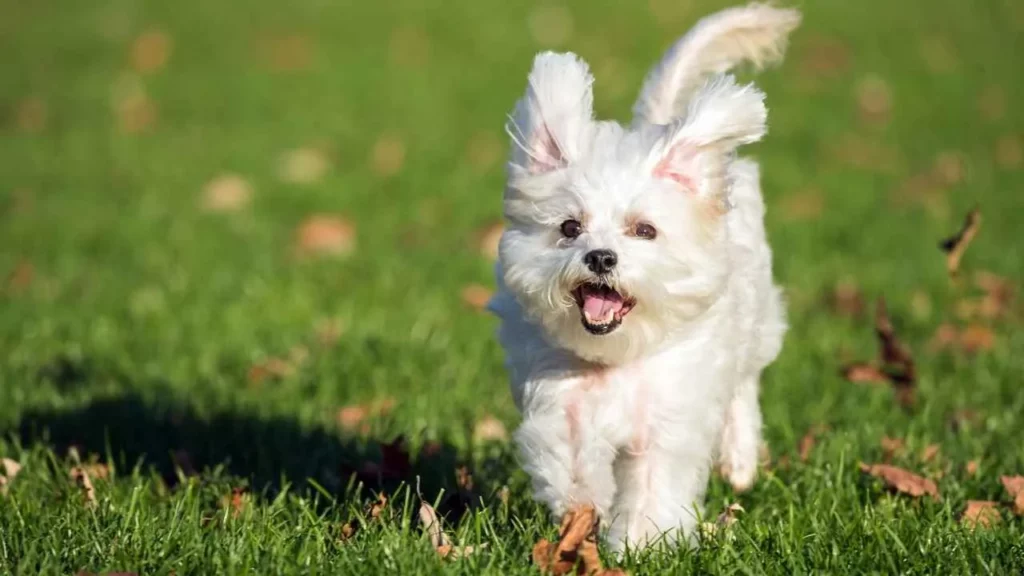
Both of these breeds are considered hypoallergenic since they do not shed much, which makes them suitable for allergy sufferers.
Health Considerations and Common Issues
Both breeds are generally healthy and have a life span of 12 to 15 years. Let us find the breed-specific concerns.
Bichon Frise dogs are facing the common health issues of skin and dental problems. They may also be affected by Hip Dysplasia, Gum Disease, cataracts, and they face bladder stone problems. A healthy diet and regular vet checkups are able to avert most of these conditions.
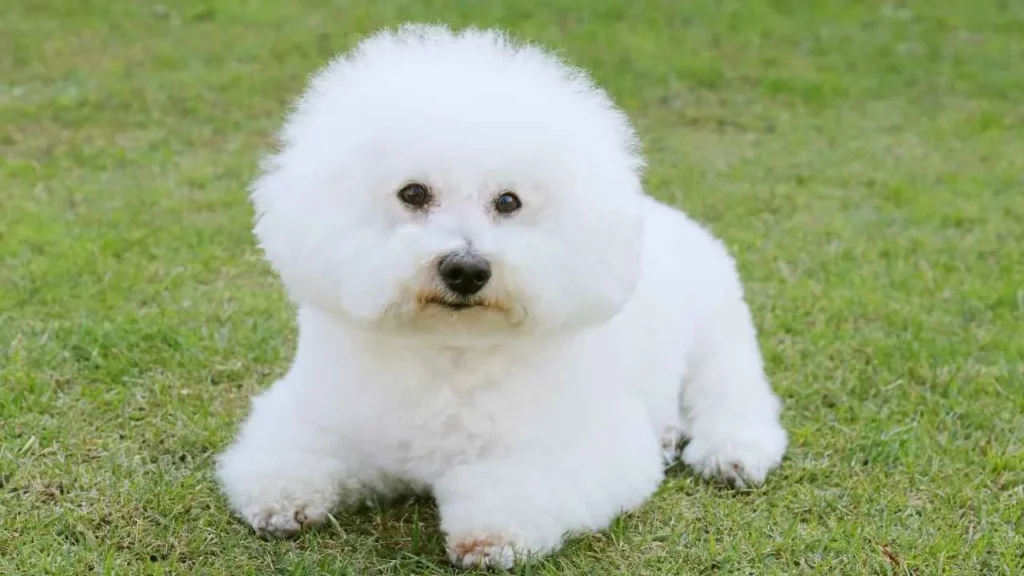
Maltese dogs suffer from the health issues of tear staining, dental issues, and progressive retinal atrophy. They are also found to be sensitive to anesthesia and medications because of their small sizes.
Regardless of which breed you get, health screening and regular attention are essential.
Conclusion
Ultimately, it is all about the lifestyles and personal preferences and the type of furry companion dog you want. When it comes to the selection of the new furry family member, you can either adopt one of them, as the Bichon Frise is kinetic and somewhat goofy with a golden heart. The Maltese is an elegant, loyal, and affectionate human companion with fancy looks.
Both of them are excellent companions who thrive to form strong bonds with their family. They only need positive reinforcement and moderate exercise. Regardless of their subtle differences, these white fur partners only need the warm place next to you. It sounds like a fair trade, right?


